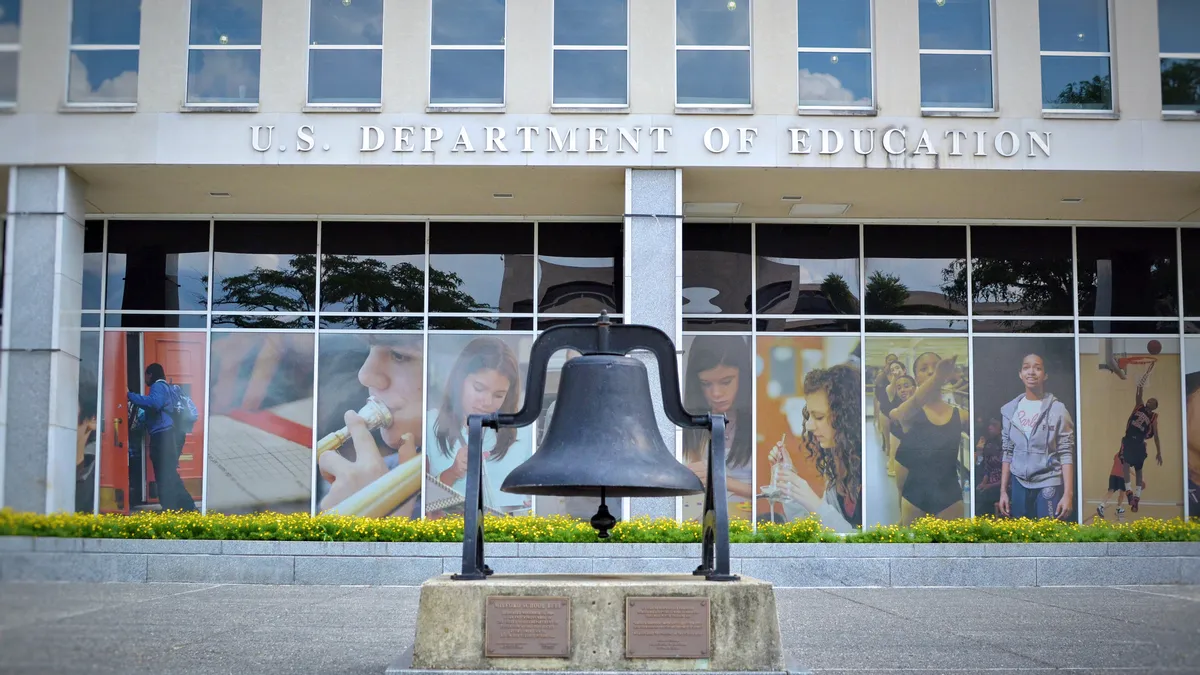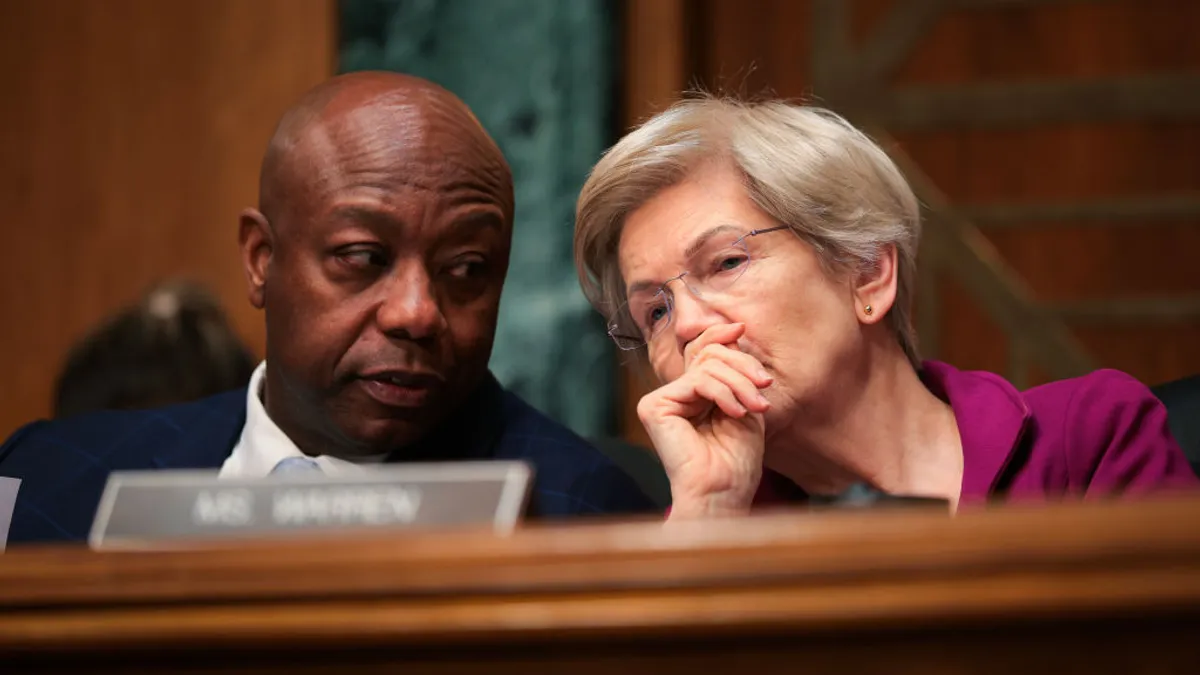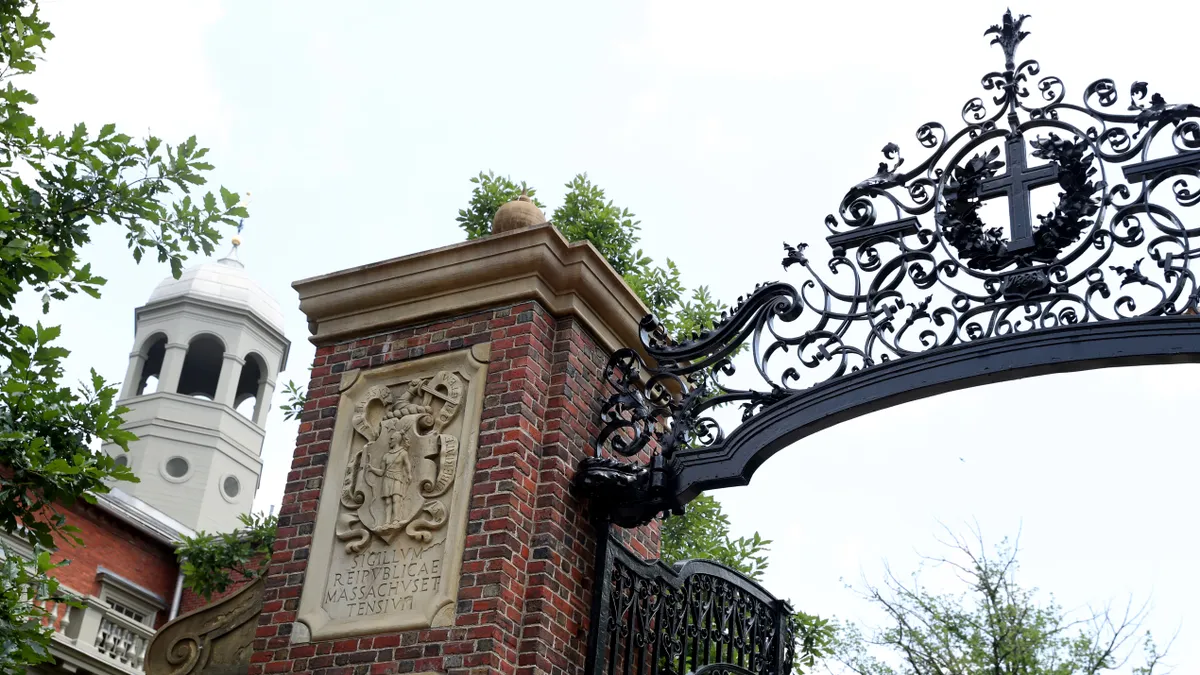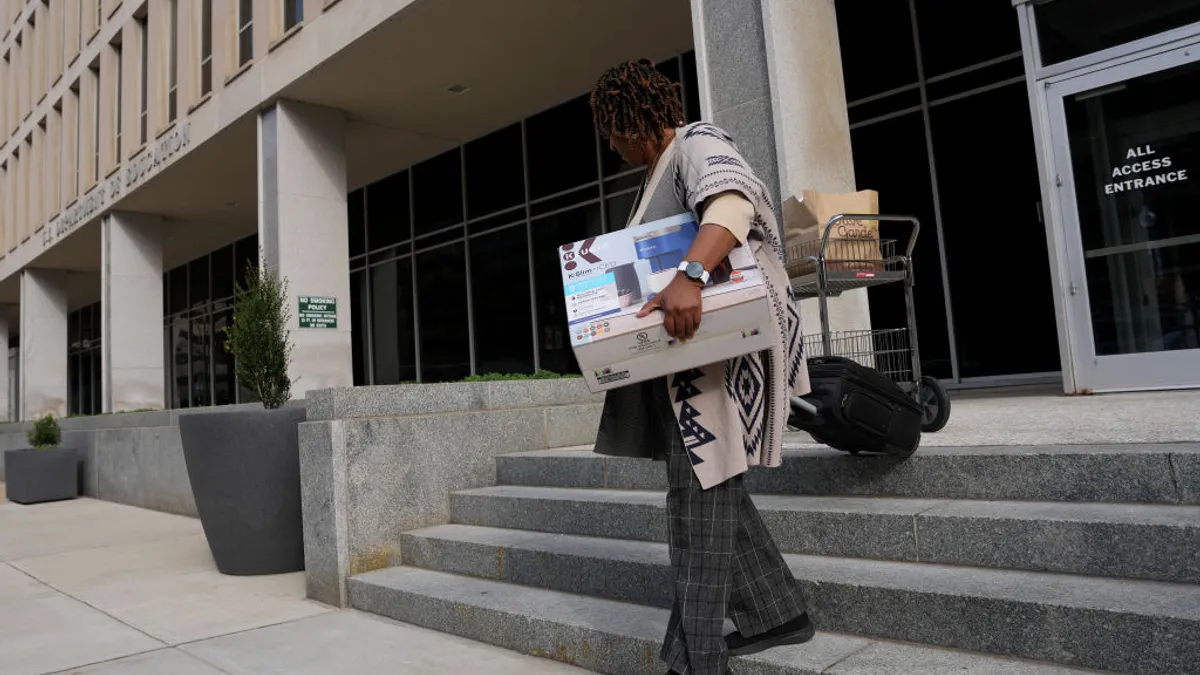For the past several months, higher education pundits prophesied that the U.S. Department of Education wouldn’t meet its own deadline to issue final versions of two high-profile regulations.
The agency originally intended in May to publish rules on Title IX, the law banning sex-based discrimination in federally funded schools. One regulation is broad and would dictate how schools must investigate sexual violence, while the other would prevent blanket bans on transgender athletes participating in sports aligned with their gender identities.
But the regulatory process is time intensive, and, as expected, the rules’ final iterations are now planned for October.
The decision immediately provoked criticism from advocates of sexual assault survivors who said the Education Department wasn’t moving fast enough. However, the delay could benefit colleges, theoretically giving them more time to prepare for a seismic policy shift.
That will hinge on when the Education Department decides to have the rules take effect, a date it has not yet set publicly. An Education Department spokesperson referred Higher Ed Dive to a May statement announcing the delay.
When will the Biden administration’s rules come into effect?
A prevailing theory among policy experts is that the Education Department will finalize both Title IX rules in October and have them come into force next year, before the start of the 2024-25 academic calendar.
This would allow colleges time to digest new complex regulatory requirements but dodge having them take effect during an academic year, said Audrey Anderson, a lawyer who specializes in higher education work at the firm Bass, Berry & Sims.
Having a mid-year start date instead would pose problems, Anderson said. Under this timeline, colleges would be deciphering the new Title IX mandates as they were training their employees in them. And they simultaneously would need to address episodes of sexual violence that arise.
This could lead to some confusing scenarios, like if an incident occurred before the new rules came into effect but was reported after the fact.
“It would be really poor policy,” Anderson said.
However, some in the higher ed space think the Education Department and its Office for Civil Rights are unconcerned about this type of pressure on institutions. OCR investigates possible Title IX violations.
Consider former Education Secretary Betsy DeVos, who helped develop the Title IX regulation still in effect. She directed that her rule take effect in August 2020, only a couple of months after it was finalized, and while colleges were grappling with the economic repercussions of the COVID-19 pandemic. Generally, regulations can take effect no sooner than 30 or 60 days after they’re finalized, depending on their complexity.
“I don’t think anybody at OCR is especially mindful of academic schedules,” said Brett Sokolow, president of the Association of Title IX Administrators.
Colleges must prepare
The American Council on Education, higher ed’s top lobby, in September also urged the Education Department not to adopt the Title IX regulations midyear. ACE suggested the agency provide at least eight or so months for colleges to adapt, similar to other regulations it implements.
Ideally, institutions should be given enough time for administrators to meet with students, faculty and others who would want to offer input on how the federal Title IX requirements would translate to campus policy, said Anne Meehan, assistant vice president of government relations at ACE.
Sokolow urged colleges to bring constituents to the table early, noting the draft regulations offer a glimpse of what to expect.
“We know what the drafts say, this work shouldn’t start in six months,” he said.
As drafted, the Biden administration’s broad Title IX rule would give colleges some flexibility in deciding how to evaluate sexual violence reports. Institutions could tap a single official to investigate and decide on a case. Or they could embrace a framework similar to the one that the DeVos rule currently mandates, a live hearing in which an accused student and the accuser can question one another through an adviser or other third party.
However, some colleges will need to adjust based on their location — state laws and court decisions dictate certain Title IX obligations for institutions in those jurisdictions. A landmark decision in 2018 in the U.S. Court of Appeals for the Sixth Circuit, for instance, forces colleges in four midwestern states to hold live hearings and allow questioning between accused and their accusers.
For now, colleges “are in a holding pattern” after experiencing regulatory whiplash over the last several years, Meehan said. DeVos walked back longstanding Obama-era guidance on Title IX in 2017, implemented her rule a couple of years later, and now colleges will have to adapt again.
“Having the time to retrain people in new policies, new procedures, that’s something that’s going to be in the front of people’s minds,” she said.
What’s taking so long?
Policy experts doubted the Education Department's optimism in setting a May deadline for the twin Title IX rules in the first place.
After all, it took about 18 months for DeVos to finalize her Title IX proposal, introduced in November 2018. During that time, the Education Department sifted through more than 120,000 public comments, though it made minimal changes to the final regulation.
The current Education Department has said it fielded more than 240,000 comments on the Biden administration’s more extensive Title IX plan, which it released in June 2022.
A May timetable gave the department less than a year to finalize the regulation after drafting it. It would have had even less time with the Title IX athletics rule, which it proposed in April and wanted to finish up last month.
Legally, the Education Department must address every public comment it receives. That doesn’t mean it has to respond directly to each individual, and certainly some comments make the same point — but it’s still a tall regulatory order.
Despite this, sexual assault survivor advocates like It’s On Us have blasted the Education Department for the postponement, saying that continuing the DeVos-era rule harms students.
Survivor groups have said the current regulation licenses colleges to disregard many reports of sexual violence. Indeed, under the rule, institutions don’t have to investigate most incidents that occur off campus, for instance.
“Therefore, it is urgent and necessary for the Department to issue comprehensive guidance for institutions on how to effectively implement a mid-year regulatory change before the school year begins and set institutions up for success when a final regulation is issued,” Tracey Vitchers, It’s On Us’ executive director, said in a statement last month.























